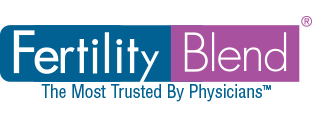Do things like meditation and good food really have an impact?
Most of us view stress as a way of life, or even a badge of honor. How many times have you heard someone (perhaps yourself) lament, “I wish I could do X, but I’m just so busy!”
Often, “busy” is code for “important.” We are in high demand! From our jobs, our families, our life. And on one level, there’s nothing wrong with that. The problem is, all that busy giving could be running your adrenals (and the rest of your hormones) to the ground, and this affects your energy levels, your sleep, your emotions, and your relationships.
Taking time for self-care isn’t slacking on your responsibilities, and it isn’t selfish. It directly impacts your health. On a very fundamental level, things we may think of as “treats” (cooking organic meals, meditation, etc.) are nourishment your mind and body needs to stay well. Or in other words, these practices constitute preventative medicine we should all be practicing. When we sacrifice our health so that other needs can be met (or other people’s needs can be met), the negative impacts catch up very quickly. And this is true whether you’re menopausal, nowhere near menopause, or beyond menopause.
So, let’s examine the connection between your hormones and your self-care, and the impact the latter has on the former.
ARE MY HORMONE LEVELS CHANGING?
All the time! And the great thing is, you can help guide them with strategic lifestyle choices.
Alisa Vitti, founder of the MyFLO app, has this to say[1] about our ever-changing hormone levels at Experience Life:
“Hormonal ratios shift each week, so adjusting food and lifestyle priorities allows you to make more hormones and break them down more efficiently. These adjustments also address micronutrient deficiencies, prevent stress and burnout, and let you find more enjoyment doing things in the right timing.”
Here, Alisa is talking about pre-menopausal ladies, but the advice rings true for all women. You CAN make more of certain types of hormones, and you CAN break them down healthfully – at any age.
Cortisol and adrenaline levels are also changing on a daily basis, if not a moment-to-moment one depending on external stress factors. But, zooming out, your hormones start to change in a more profound way once you approach your late 30s. According to Harvard Medical School[2]:
“By our late 30s, we don’t produce as much progesterone. The number and quality of follicles also diminishes, causing a decline in estrogen production and fewer ovulations. As a result, by our 40s, cycle length and menstrual flow may vary and periods may become irregular. Estrogen may drop precipitously or spike higher than normal.”
So your hormones are changing on a macro level (according to your fertility) and on a micro level (according to your stress and health). This is normal, and to be expected, but it doesn’t mean you aren’t an active participant in those changes. The way you live helps direct the direction of your endocrine system.
Now, let’s look at those micro, daily changes, and how certain lifestyle practices (self care) can enhance them.
MEDITATION OR ACTIVE RELAXATION
As many a monk has noted, meditation isn’t for your mind – it’s a set of tools to soothe your nervous system. Now, why is that relevant to your hormones?
As we’ve discussed before on this blog, stressful situations – be it that jerk in traffic or a fight with your spouse – can pull the trigger on your stress hormones, adrenaline and cortisol. Adrenaline is the first out of the chute, helping you spring into action in the face of danger. Cortisol is next, suppressing the rest of your bodily functions (like digestion, immunity functions, sex drive, etc.) so that the most blood possible is available for you to fight off said danger.
Yes: it’s a holdover from early human evolution. And, yes, these hormonal “squirts” were very good at helping us survive. But today, these reactions aren’t very good at helping us live. (There’s a difference!)
A regular meditation practice (essentially, deep breathing in a quiet space with no interruptions, for 5-20 minutes at a stretch) helps rewire your responsive stress system. It helps your adrenaline and cortisol pull back, so that when faced with that driver who cuts you off, your survival mechanisms don’t automatically burst onto the scene. With less adrenaline coursing through your veins, your kidneys don’t have to work as hard (liberating them to flush out other toxins instead), and cortisol isn’t putting the breaks on your digestion, your immunity, and your sex drive.
What if meditation isn’t for you? No problem. A simple “active relaxation” routine can yield similar benefits, whether it’s a warm epsom salt bath you take every night, or reading a book with your tea in the morning for 15 minutes. A small, regular ritual that helps your nervous system take a break, and tells your brain: “it’s all good!” This practice is subtle medicine for your hormonal system, and practiced regularly, can yield less bloat and stress, and more desire and youthfulness.
FOOD
In her book “Great Sex Naturally: Every Woman’s Guide to Enhancing Her Sexuality through the Secrets of Natural Medicine,” Dr. Laurie Steelsmith writes extensively about the production and breakdown of certain hormones, via the food we eat. Here’s a taste, where she discusses midlife and menopausal symptoms:
“You can significantly improve your estrogen metabolism by choosing plenty of helpings from the cruciferous family of vegetables (for example, broccoli), because they’re high in indole-3-carbinol – a potent anticancer agent that supports your body’s ability to make friendly estrogen. Include the cruciferous clan at your dinner table often, preferably lightly steamed or raw (high temperatures can destroy indole-3-carbinol).”
Sweet! But, what about the rest of your sex hormones, in addition to estrogen? Here too, Dr. Steelsmith has insights:
“To function optimally, your entire body, including your sexual organs, needs essential fats – “essential” because your body doesn’t produce them, and you have to ingest them in your diet…you want to increase your intake of omega-3 fats, which have a wide range of health benefits. They assist in maintaining the moisture and health of your vulvar tissues, help with your production of sex hormones, and improve your circulation — including blood flow to your sexual organs, which enhances your ability to feel aroused.”
As you can see, the food we ingest, and the nutrients it releases into our bloodstream, helps pull the levers of our hormones to keep us feeling energetic, sexual, comfortable, and alive. That’s because your hormonal system is less like a factory working in the background while you do your thing; it’s your team of employees, always reporting to you, the boss. And you can give them direction precisely by ingesting certain foods, and not others.
CONCLUSION
Hopefully as a culture, we can move away from viewing self-care as indulgent, and view it more like the rest of our medicine. As preventative care, you can invest in your hormones in two ways that will save you resources later: investing in time and investing in quality ingredients (for healthful meals).
“But these are both expensive!” you might say. And, you’re right! Taking time is an expense. And so is the actual cash register expense of good food.
But you can think of it this way: you’re taking care of your hormones now, on the front end. This does 3 powerful things:
- Helps you live longer and better,
- Helps you potentially avoid back-end medical costs for ballooning health problems,
- Contributes to a ripple effect where things like meditation and good food eventually become normalized, more accessible, and less costly.
Let’s throw the “busy” badge of honor in the trash – it’s a lie that hurts our health. Let’s take time for ourselves instead, and celebrate that powerful investment.
Get Our Blogs In Your Inbox Each Month!
ADDITIONAL LINKS + RESOURCES:
https://experiencelife.com/article/cyclical-self-care/
https://www.ncbi.nlm.nih.gov/pmc/articles/PMC5606908/
https://doctordoni.com/2016/12/an-empowered-womans-guide-to-perimenopause/
https://www.everydayhealth.com/menopause-pictures/taking-care-of-yourself-during-menopause.aspx
https://www.womenshealthmag.com/health/a19902161/how-to-regulate-hormones-naturally/
http://www.pcrm.org/health/health-topics/a-natural-approach-to-menopause
https://www.health.harvard.edu/womens-health/perimenopause-rocky-road-to-menopause
https://www.amazon.com/Great-Sex-Naturally-Enhancing-Sexuality/dp/1401931464
[1] “What Cyclical Self-Care Is — and Why It’s Important,” read more at: https://experiencelife.com/article/cyclical-self-care/
[2] “Perimenopause: Rocky Road to Menopause,” read more at: https://www.health.harvard.edu/womens-health/perimenopause-rocky-road-to-menopause
The post What is the Effect of Self-Care on Hormone Health? appeared first on DWC.

